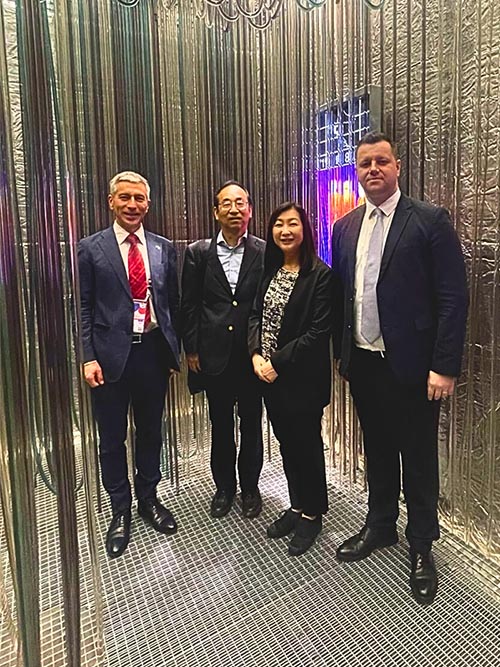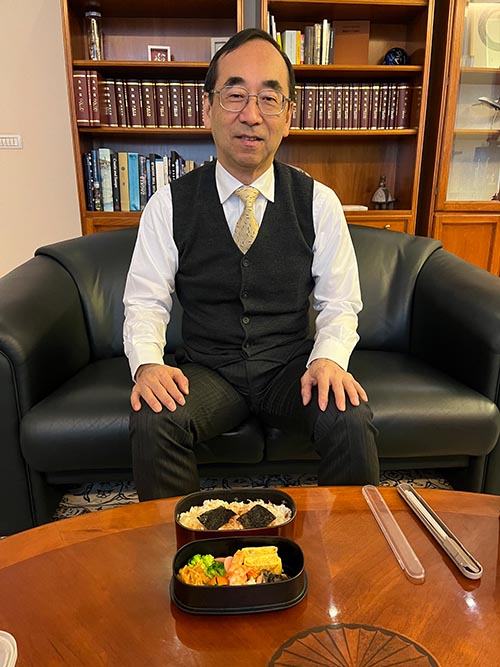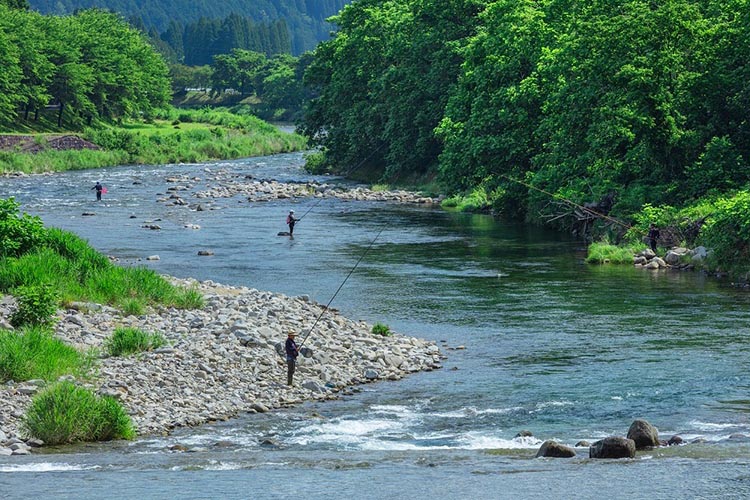As Japan deepens its footprint in Croatia and the wider Adria region, Ambassador Wada Mitsuhiro speaks on trade, innovation, and trust in uncertain times.
Japan may be thousands of kilometres from Croatia, but as Ambassador Wada Mitsuhiro explains, the two countries are closer than ever — in values, interests, and opportunity. In this exclusive interview with The Region, the Ambassador reflects on Japan’s expanding role in Croatia and the wider Adria region — from precision technology and tuna exports to diplomatic trust and Expo Osaka 2025. He speaks not only as a seasoned diplomat, but as a captivated visitor moved by local kindness, and as a connector of two cultures committed to quality, respect, and long-term cooperation.
For a country geographically distant from Croatia, Japan has built a surprisingly meaningful presence — economically, diplomatically, even culturally. What drives Japan’s interest in this part of Europe right now?
Croatia is known as an attractive tourist destination for its natural beauty and rich historical heritage. Despite its small size, it has a remarkable presence in global sports, particularly in football. Many Japanese are drawn to Croatia’s charm, and even my son chose it as his honeymoon destination.
Also, as a member of both EU and NATO, Croatia is an important partner that shares fundamental values with Japan. Since “Ukraine today may be East Asia tomorrow”, we cannot remain indifferent. In an increasingly uncertain world, cooperation and collaboration between like-minded countries like Japan and Croatia are more vital than ever. We also see strong potential for cooperation especially in the reconstruction of Ukraine.
STRATEGIC FACTS
Japan is among the few countries outside the EU to have an Economic Partnership Agreement with the EU—giving Croatian exporters improved access to the Japanese market.
From an economic perspective, Croatia is one of the fastest-growing EU countries. With its long Adriatic coastline and excellent ports, it is ideally located as a gateway to the entire region. There remains significant untapped potential in our bilateral economic relations.
When it comes to business, which Japanese companies are currently shaping the story in Croatia — and are there Croatian companies building meaningful ties in Japan? What sectors hold the most promise for deeper investment and cooperation?
Notable examples of Japanese companies in Croatia are Nipro in the healthcare sector; Yazaki, a supplier of automotive components; and Shimadzu, a provider of precision and analytical instruments. These companies maintain steady cooperation with Croatian partners, contributing to local economy and technology transfer.
There remains significant untapped potential in our bilateral economic relations
On the other hand, the presence of Croatian companies is also growing in Japan. For example, Infobip entered a strategic partnership with NTT Communications (NTT Com Online) in 2024. This partnership is expected to further introduce Infobip’s solutions to Japanese enterprises.

The strengths in technology and innovation of both sides offer great potential for cooperation in digital and ICT fields, especially in areas such as startup ecosystems, smart city development, and application of AI and IoT. Tourism, renewable energy, and healthcare are also promising areas for future collaboration.
Tuna imports are also a key component of our bilateral trade. It accounts for about 60% of Japan’s total imports from Croatia and this figure underscores the importance of tuna among Croatian products entering the Japanese market.
You’ve observed how Croatia works — its pace, its politics, its priorities. What aspects of the Japanese mindset or business culture do you think could genuinely resonate here — and which might be misunderstood?
Japan’s values of sincerity, honesty and responsibility are highly appreciated in Croatia and often form the solid basis for building trust. Japanese commitment to keeping promises and prioritizing quality resonates with Croatian partners, facilitating long-term cooperation. Furthermore, the diligence and the spirit of “wa” or harmony, often align with Croatian way of thoughtful and respectful interaction.
That said, certain aspects of Japanese business culture may be misunderstood. For example, our way of careful decision-making and building consensus can be seen as slow or hesitant. Also, Japanese indirectness and ambiguity in communication may contrast with the directness preferred in Croatian culture.
Adria Meets Asia
• Croatia and Japan established diplomatic ties in 1993
• Infobip partnered with Japan’s NTT Communications in 2024
• Japan imports around €40 million worth of Croatian tuna annually
Yet, these cultural differences can become sources of strength rather than friction when acknowledged and respected. Understanding each other’s values in communication and decision-making styles will be the key to unlocking our deeper and more effective business collaboration.
Expo 2025 in Osaka is bringing together over 160 countries to imagine the future of how we live and collaborate. What kind of opportunities could this global platform create not only for Croatia, but for other countries across the Adria region — and where do you see the most potential for meaningful exchange?
Expo 2025 in Osaka–Kansai offers a valuable opportunity for Croatia and the broader Adria region to showcase their strengths, connect globally, and form lasting international partnerships. For startups and SMEs, in particular, the Expo can serve as a launchpad for entering new markets and forging cross-border collaborations. It also provides a forum for sharing cultural, technological, and social innovations, fostering empathy and cooperation toward a more sustainable world.
We couldn’t speak the same language, but we connected heart to heart
The Expo can also stimulate exchange among youth interested in future-oriented technologies, leading to joint research and talent development. It may encourage new academic partnerships and strengthen ties at the local government level.
More than just an event, the Expo is a platform for global dialogue and cooperation. For countries in the Adria region, it represents an opportunity to deepen their presence on the international stage while redefining their role in building a shared global future.
On a more personal note — what has it been like living in Croatia as a Japanese diplomat? What places, traditions, or small moments here have left the deepest impression on you?
Living in Croatia is an extraordinary experience. While based in Zagreb, a city with rich history, wonderful places throughout the country are easily accessible by car. In just six months since my arrival, I have already visited various places in Croatia and experienced its diverse culture and unique histories, learning something new every time. Local food, wine and olive oil are also amazing.
Moreover, I am often impressed by the kindness and hospitality here. Recently, one memorable moment happened on the island of Cres, while walking with my wife we saw beautiful flowers in someone’s garden. The woman who lived there noticed us, cut a branch full of blossoms and handed it to us as a gift. We couldn’t speak the same language, but we connected heart to heart.
Naturally, I have many diplomatic challenges ahead. I aim to deepen ties with people in Croatia, including officials, business leaders, artists, academics and media. I will remain fully committed to further strengthen the relationship between Japan and Croatia.









